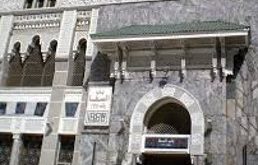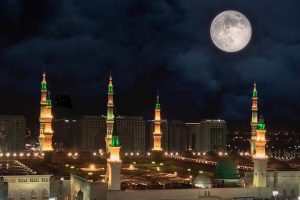Haashim was the first to initiate the custom of sending off two trade caravans a year; one to Syria in summer and another to Yemen in winter. According to this unvarying custom, a caravan would set out in every season of the year. These caravans would travel in winter across desolate swathes of land, at times through the desert and at times crossing the sea, until they would arrive at Yemen and even further, at Ethiopia.
Najaashi, the emperor of Ethiopia, was exceedingly hospitable towards Haashim and would present many gifts to him. In summer, the caravans would travel to Syria (including Jordan and Lebanon), Gaza and Ankara (which was then the capital of Rome). Heraclius, the Byzantine emperor, would also approach Haashim with utmost respect and would often present gifts to him.
A poet encapsulates:
سفرين سنها له ولقومه سفر الشتاء ورحلة الاصياف
“Haashim initiated two journeys for himself and his people, a journey in winter and another in summer.”
Haashim secured assurances of extensive protection from the Yemeni as well as the Roman governments for his trade caravans. Since the trade routes of Arabia were not safe from robbers, Haashim formed a pact with all the various tribes of the peninsula assuring them that we (the Makkans) would freely transport your basic necessities to you, whilst you in turn should pledge safe passage to all our caravans passing through your tribal lands. As a result of Haashim’s brilliant strategy, all the trade routes leading to and from Makkah became safe.
Allah Ta’ala also draws the attention of the Quraish to this bounty in the following words:
لِإِيلَـٰفِ قُرَيْشٍ ﴿١﴾ إِلَـٰفِهِمْ رِحْلَةَ ٱلشِّتَآءِ وَٱلصَّيْفِ ﴿٢﴾ فَلْيَعْبُدُوا۟ رَبَّ هَـٰذَا ٱلْبَيْتِ ﴿٣﴾ ٱلَّذِى أَطْعَمَهُم مِّن جُوعٍ وَءَامَنَهُم مِّنْ خَوْفٍ ﴿٤﴾
“(With the grace of Allah) Due to the habituated custom of the Quraish, their habitual custom of setting forth in winter and summer, (as a form of gratitude), they should worship Allah, the Lord of this house, He who has fed them against hunger and shielded them from fear.” (Surah Quraish)
(Extracted from Seeratul Mustafa 1/31)
 Ihyaaud Deen An Effort to Revive Deen in Totality
Ihyaaud Deen An Effort to Revive Deen in Totality



